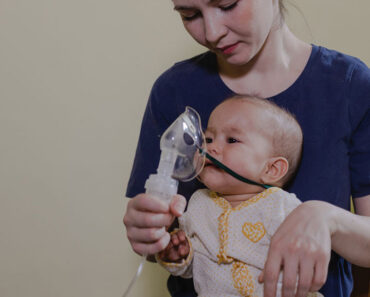What the end of daylight saving time means for your infant’s sleep schedule, and how to adjust your baby to the time change.
Before having kids, the annual fall time change meant an extra, delicious hour of sleep on the weekend. (Remember those days?) But when you’re a parent, setting the clocks back doesn’t necessarily mean an extra hour of shut-eye. In fact, if your baby usually wakes at 6 a.m. for the day, you might be up at 5 a.m. for a while.
Just like jet lag, a time change of even only one hour can affect your baby’s circadian rhythms (physical, mental and behavioural changes that generally follow a 24-hour cycle), and therefore her sleep schedule, for a few days. Those early mornings can lead to nap issues, overtired babies, and grumpy moms and dads. I’m a professional sleep consultant, and my three children are no longer babies, and even I dread the autumn time change—it can still cause crying jags and late-bedtime battles. (This also means you could be picking up your kids from daycare or commuting home after the sun has already gone down.) But there are a few things you can do to prepare before November 1 arrives.
If you’re lucky, and your child isn’t super sleep sensitive, you can just jump to the new times and wait for her to adjust. That’s what Andrea Papalia of Stoney Creek, Ont., has done with both her little ones—ages two and four—and plans to do with her four-month-old baby this year. “I’ve always just stuck to my normal times,” she explains. “The only thing I find is they fight their nap a little, but by bedtime, they’re back to their normal routine.” It may take a few days for your child to get used to it, and you might have some early mornings and rough bedtimes for a week or so, but your kids will, eventually, adapt.
Adjusting baby to the time change
For children who are a little more reliant on routine and sleep, Shelly Weiss, a paediatric neurologist at Toronto’s Hospital for Sick Children and president of the Canadian Sleep Society, recommends a gradual shift in the bedtime and wake-up schedule in the days leading up to November 1. “To change our biological clocks by one hour, we should move wake time, sleep time and mealtimes slowly over a few days in anticipation of the time change,” says Weiss. “After the [fall] time change, a 7 p.m. bedtime on the clock will actually feel like 8 p.m. So on day one, put the baby to bed a little later than usual. For example, if bedtime is usually 7 p.m., try for 7:15, and let him sleep 15 minutes longer, if you can. Then on day two put him to bed at 7:30, and let him sleep 30 minutes longer, etc., until you get to the time change.”
The rest of your baby’s schedule will need to shift slightly later as well, including feedings and naptimes. I recommend starting this transition process at least three to four days before the time change. That’s usually enough time for babies, and parents, to readjust before the actual time change arrives (technically, we set the clocks back at 2 a.m. on Sunday, after you go to bed on Saturday night—which happens to be Halloween night this year).
“It shouldn’t take more than a few days to adjust to a one-hour time change,” says Weiss. (Flying across multiple time zones and dealing with jet lag is a different matter.)
While it may seem complicated, it really just means putting the baby down a little later, says Sophie Boisjoly, a mom of three in Gatineau, Que. Her youngest is eight months old. “It’s actually always gone very smoothly,” she says. “I push back the bedtime for a day or two and that’s it.” Remember that after daylight saving ends, it will also get darker earlier, which sometimes helps kids settle down at night. (On the other hand, it will get lighter earlier, too.)
Like many other challenges in child rearing, I tell my friends and clients that the best thing to do during the time-change transitions—with both “fall back” and “spring forward”—is to hang in there and take a deep breath. I rely on two go-to words that have become part of my own personal parenting mantra: persistence and consistency. Within a week your family will be back on track.
If this doesn’t work, you can always move to Saskatchewan, where (in most towns) daylight saving time is not observed at all.

































